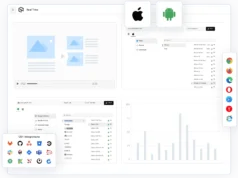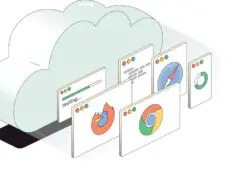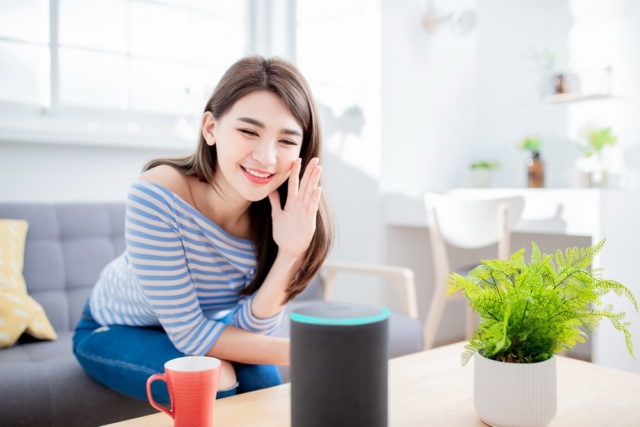
If you were asked to define a smart speaker, what would be your response? You might describe it as a digital assistant. You might describe it as a hub for your smart home devices. At the end of the day though, a smart speaker is really just a small computer device that you control with your voice.
Still, do not be fooled by a seemingly simple explanation. Controlling a computer with one’s voice is not as simple as it sounds. In fact, voice control relies on a very complex science known as natural language processing (NLP). The more refined NLP technology is, the better voice control works.
It is for this very reason that companies like Amazon and Google are in a race to see who will dominate the NLP space. If a single company does manage to pull off market dominance, it will have control of the smart home industry for years to come.
Note that Google and Amazon are not the only players here. There are other names – both recognized and unrecognized – competing for the prize. It might be that a company you have never heard of ends up doing for NLP what Amazon did for online shopping.
About Natural Language Processing
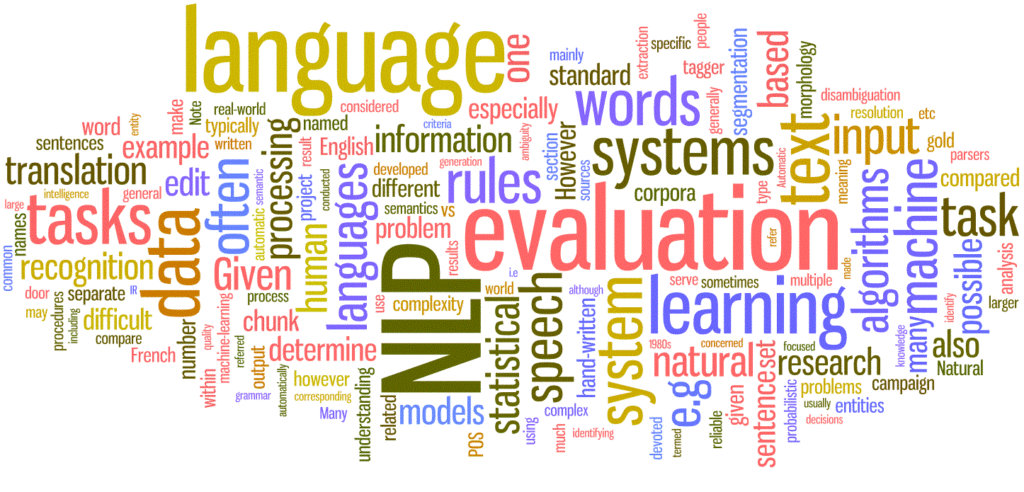
Having a working knowledge of NLP makes understanding the competition between technology companies a bit easier. In the simplest possible terms, natural language processing is the ability of computerized devices to understand human language as spoken naturally.
Imagine having a conversation with a family member. Even if that family member leaves out a word here or there or doesn’t pronounce certain words clearly, you can still understand what’s being said. That is because the human brain has the ability to fill in gaps and self-correct mistakes. Your brain also has the ability to understand the intent of the person you are speaking with. Even if the right words are not used, the same meaning can be conveyed.
Computers are incapable of such logical thought and analysis. Therefore, they have a hard time analyzing words and phrases that are not directly programmed into them. The point of NLP is to enable computers to analyze language more naturally so that programming static words and phrases is not required.
NLP and Data Analytics

Vivint Smart Home is one of a handful of smart home companies that promote using Amazon Alexa and Google Home devices as digital assistants. Vivint even published a blog post explaining how either of the two smart speakers can help kids do their homework.
In order for a digital assistant to be used to its maximum potential, it has to know what to do with natural language. And in order to improve NLP, device manufacturers are turning to data analytics. We can illustrate the usefulness of data analytics by discussing this post.
This post was written using dictation software. No typing was involved. Rather, words were spoken into a microphone, interpreted by dictation software, and transferred into a word processor.
Dictation software, like digital assistant software, applies data analytics to the spoken word. Doing so is a matter of recognizing words and then comparing them against a massive database before organizing them into complete sentences. Data analytics relies heavily on context to figure out what words to use in the final product.
It is data analytics that allow smart speakers to understand the intent of questions being asked. Likewise, data analytics allow those same smart speakers to return the most intelligent answers. Without data analytics, smart speakers could only respond to pre-programmed questions with pre-programmed answers.
Smart Speaker Results
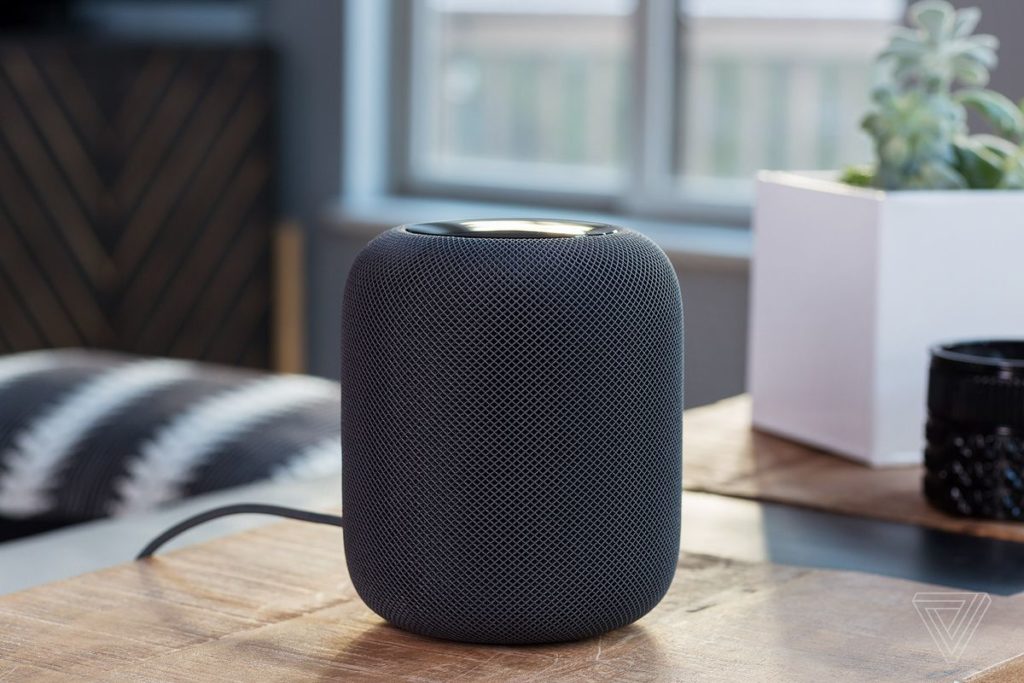
Hopefully you now understand a bit more about why NLP is so crucial to smart home technology. The usefulness of any smart speaker is largely determined by its NLP capabilities. We know this is true because we have seen how Amazon Alexa and Google Home devices work.
A fascinating piece comparing Amazon and Google smart speakers was published by PC Magazine in 2019. The magazine’s reviewer’s compared Alexa and Google Home devices according to how they responded to voice control. What they discovered almost certainly influences what customers think about their respective devices.
For example, testing revealed that Google Home is a bit more fluid. Users have the freedom to get the information they want without having to speak specific commands. They can use different combinations of words and phrases to get the desired results. Alexa apparently requires a bit more specificity.
Greater fluidity undoubtedly makes Google Home easier to use. Users can speak more naturally and still get decent results. The downside is that Google Home is not capable of delivering highly detailed results. If users want to look below the surface for less obvious information, Google Home will not perform well.
This is where Alexa shines. Because Alexa relies more on set words and phrases, the device can be programmed to return more detailed results based on those words and phrases. That means users can get better results if they are willing to memorize Amazon’s static commands.
Speed is of the Essence
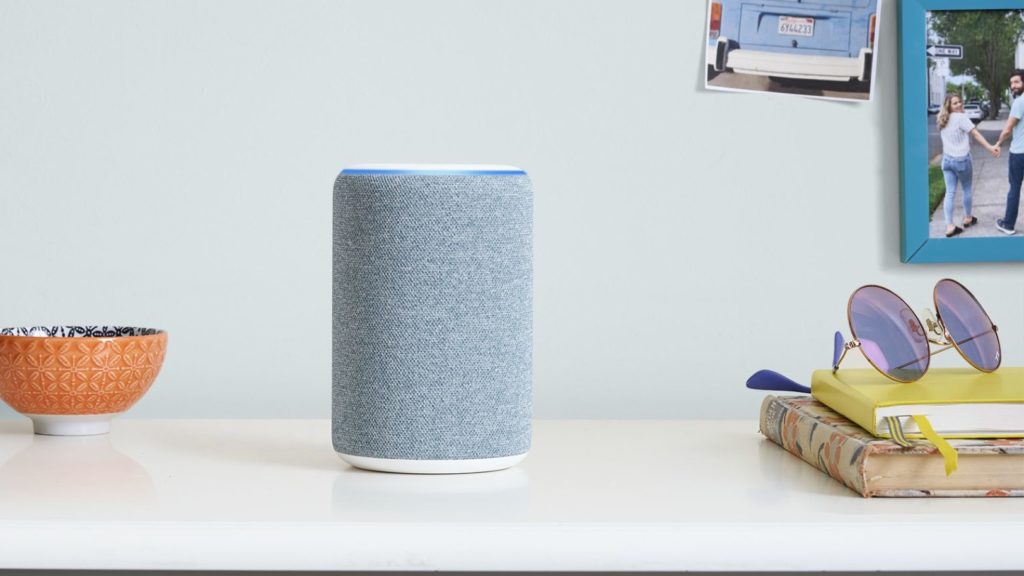
NLP capabilities alone are not going to propel one company into the smart home lead. The eventual winner of the NLP race is going to have to be able to produce results at a high rate of speed. Again, this is easily understood if you think about having a conversation with a family member.
Dragging conversations are not fun. If you ask a question, you expect the other person to answer in a reasonable amount of time. You couldn’t have a productive conversation if it took each of you 10 minutes to respond to what the other said. The same thing applies in the smart home arena.
We have become accustomed to extremely fast internet connections and download speeds. We are accustomed to websites loading in mere seconds. Likewise, we expect our smart speakers to respond equally fast. Sometimes they do. Sometimes they do not.
The race for NLP dominance is on. The eventual winner will likely control smart speakers and the smart home industry, in general, for years to come.


